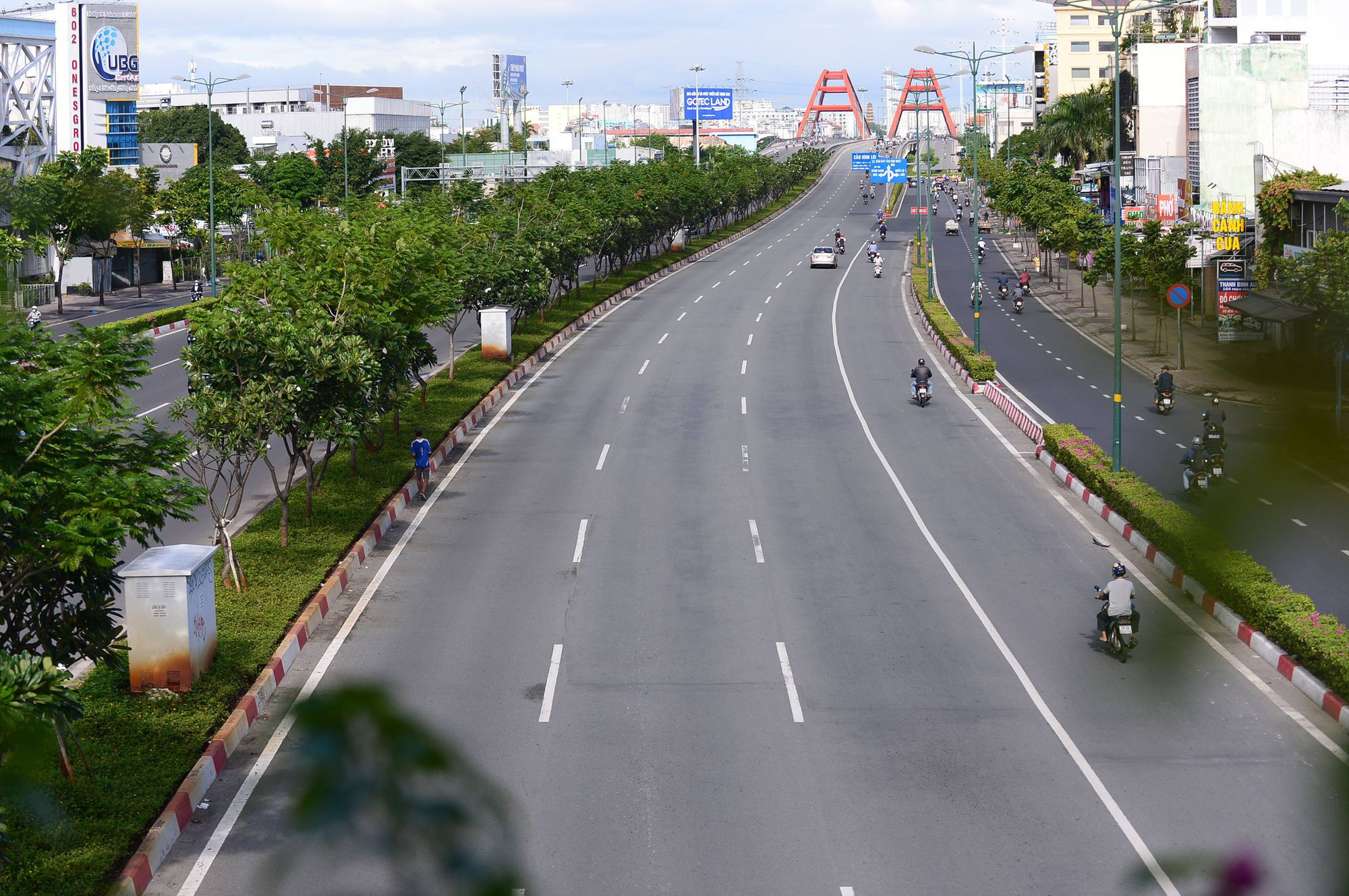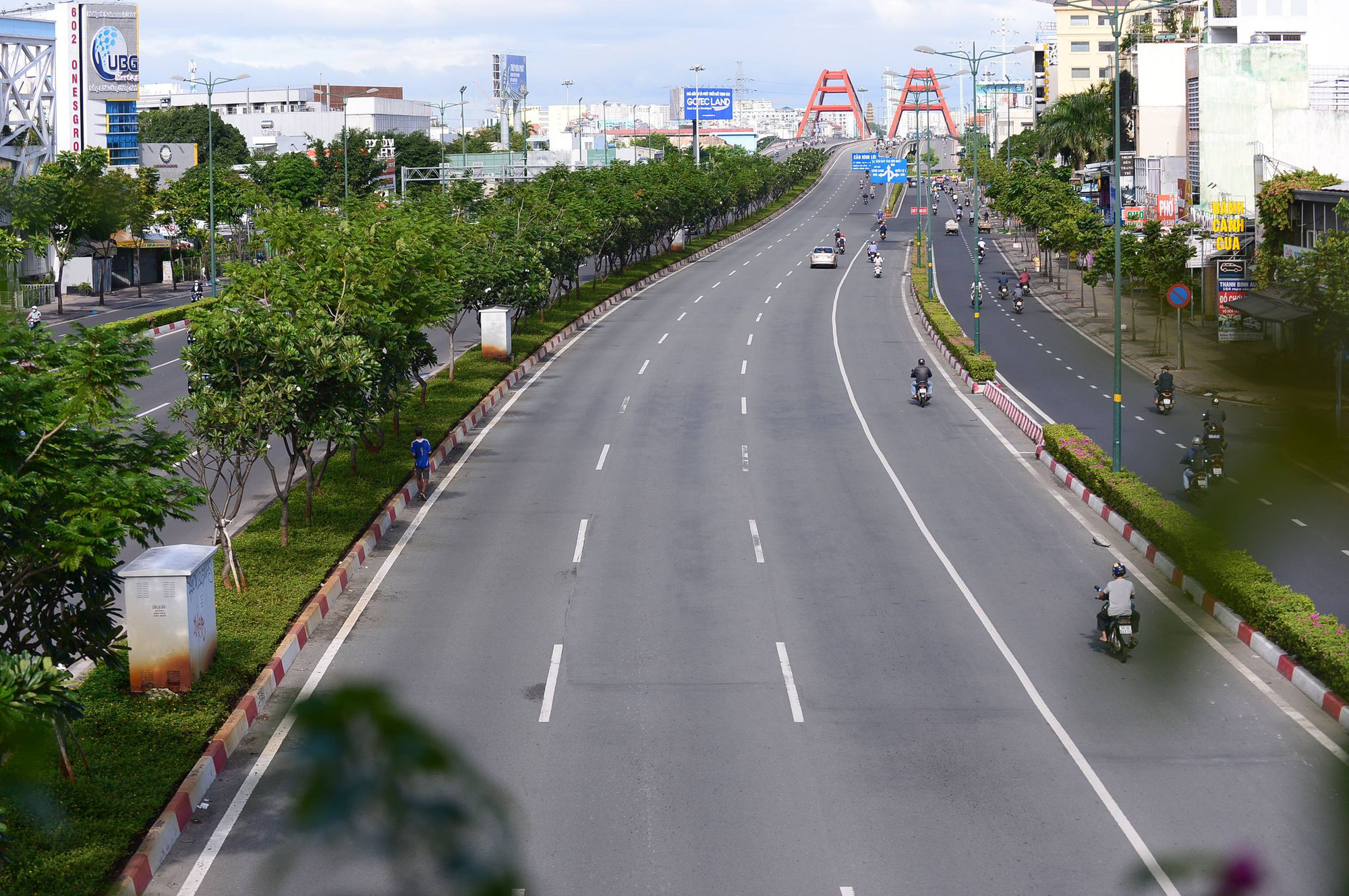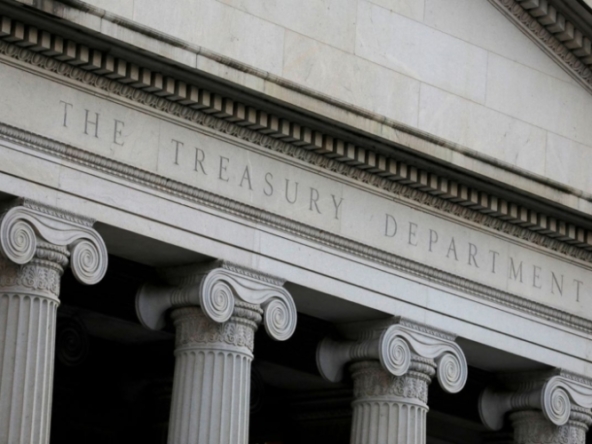People in very high-risk areas are required to stay home

Authorities in Ho Chi Minh City will leave food at the doors of people living in areas with a very high risk of COVID-19 infection as these citizens are requested to stay home completely under the implementation of more severe COVID-19 containment measures.
The more stringent measures, approved by Secretary of the Ho Chi Minh City Party Committee Nguyen Van Nen, will be applied together with existing restrictions until August 1.
Accordingly, people living in locked-down areas are banned from coming into contact with each other or anyone else.
They are only allowed to leave their houses in medical emergency cases and for trips to designated supermarkets or markets twice a week, using access tickets provided by local authorities.
Residents in areas with a very high risk of transmission and those from households with COVID-19 patients and direct contacts, who are practicing home quarantine as per regulations, must stay indoors completely and will have their food supplied by functional forces.
In centralized quarantine facilities, isolated individuals must not leave their rooms or interact with any other individuals unless to receive emergency treatment.
Residents of small alleys with dense populations have been asked to social distance.
Secretary Nen’s new order has also limited the number of business activities allowed to remain active.
Production, business, and construction activities with low priority must be halted.
Banks and securities firms shall only maintain an efficient number of workers or let them work alternately in different shifts to provide necessary services in a timely manner, especially at transaction offices, while ensuring social distancing requirements.
Only companies providing essential medical services, pharmaceuticals, food, meals for hospitals, medical isolation areas and COVID-19 treatment areas, electricity, water, gas, postal, telecommunications, public sanitation, transportation of essential goods, State treasury, funeral services and a number of other essential services regulated by competent authorities are permitted to continue operation, given the service demand and safety requirements.
Other production companies are only allowed to keep operating if they are able to provide workers safe accommodations inside their facilities or at other locations, and ensure that their workers will not travel anywhere else.
Only vendors selling essential food are allowed to operate at a capacity of 30 percent compared to normal conditions on an even-odd day basis at conventional markets.
Markets must ensure open space and install barriers between buyers and sellers, make clear price lists, prepare food in ready-to-go bags, and strictly enforce social distancing rules.
COVID-19 checkpoints at gateways into the city will only allow official vehicles, goods transport vehicles with identification QR codes, personal vehicles of state agencies and armed forces, vehicles serving the pandemic prevention mission and public service, and buses repatriating stranded people to their hometowns that must pass through the city.
Social distancing measures under the government’s Directive No. 16 had been enforced in Ho Chi Minh City since July 9 before being extended to the entire southern region on July 19 as per Prime Minister Pham Minh Chinh’s order.
Municipal authorities have escalated measures to curb the virus spread as the city has logged thousands of patients each day recently.
In addition to implementing more extensive measures, the city will continue improving treatment capacity and increase medical equipment supply, as well as taking care of the poor and the vulnerable.
The Ministry of Health on Saturday morning confirmed 3,991 new local COVID-19 cases, raising the country’s tally to 86,957, including 15,536 recoveries, as recorded since early 2020.
Of the latest cases, 2,070 infections were logged in Ho Chi Minh City, which has risen to the top of the country’s leaderboard in terms of new infections.
Since April 27, when the pandemic’s fourth wave appeared in Vietnam, the southern metropolis has accounted for over 52,544 cases in the country’s total 84,812 domestic infections.







